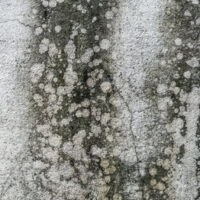Injuries Caused by Mold Exposure

Most people know that exposure to certain substances, such as asbestos, which can be found in our homes can cause serious injury. However, few know the full dangers posed by repeated exposure to mold. This risk is especially high in Florida, which has substantial reserves of water, making it one of the most humid states in the country. While this proximity to moisture allows for the growth of thousands of different types of flora, increased access to water recreation, and a diverse wildlife, it also leads to the growth of mold. This can be extremely dangerous to human health when it occurs in the cracks and crevices of buildings, as too much exposure to these substances can cause respiratory problems, infection, and skin rashes.
When dangerous mold is allowed to grow through someone else’s negligence, injured parties may be able to hold that party accountable in court, so if you suffered side effects through no fault of your own from coming into contact with dangerous mold, you should strongly consider speaking with an experienced mold injury attorney who can help you seek compensation for your losses.
Mold Basics
Mold is a fungus that tends to thrive in damp and dark places and grows by breaking down decomposing matter and then releasing spores into the air to reproduce. Fortunately, the majority of molds are harmless to the average person in small amounts. However, it is extremely dangerous for people to be exposed to large infestations of mold on a regular basis, especially if they have respiratory issues or have weakened immune systems. Those suffering from autoimmune disorders, recent organ transplant recipients, the very young, and the elderly are especially at risk of suffering health problems after being exposed to mold.
Where Does Mold Grow?
Like any other type of fungi, mold grows in the presence of moisture and in areas with little access to light. Unfortunately, there are many places in the home that fit this description. In fact, even if there are no actual water leaks, mold can grow in a residence if there is seepage through:
- Foundation walls;
- Cellar floors;
- Dehumidifiers;
- Air conditioners;
- Window condensation;
- Defective plumbing;
- Damp bathrooms;
- Air filters; and
- Potted plants.
Certain types of mold spores are known for thriving on specific surfaces, such as hardwood floors and bathroom tile.
Health Effects
Those who are exposed to certain types of mold could experience dangerous effects on their respiratory health, including:
- Coughing;
- Wheezing;
- Asthma;
- Shortness of breath; and
- Chest tightness.
Many of those who are exposed to high levels of mold also complain of headaches, eye and skin irritation, and in some cases, infections in the lungs.
Liability for Mold Injuries
Victims of mold exposure are often able to recover compensation to cover their medical bills and other losses when they can prove that exposure could have been prevented, but for the negligence of another party. This could include an employer, a landlord, or a property manager, who could be required to compensate the injured party for medical bills, lost wages, permanent disability, and pain and suffering.
Seek an Experienced Mold Injury Attorney
To schedule a free consultation with a dedicated and compassionate mold injury attorney, please contact Boone & Davis in Fort Lauderdale at 954-566-9919 today.
Resource:
cdc.gov/mold/faqs.htm
